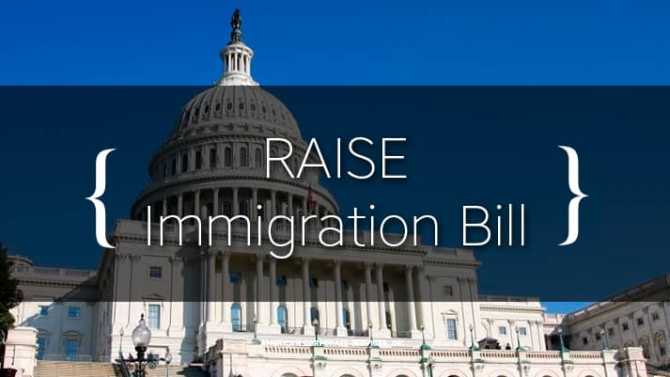Although it was introduced in the U.S. Senate on February 7, 2017, it is likely that most people have heard about the Reforming American Immigration for Strong Employment (RAISE) Act. Many more will become aware of it after 2nd as the media covers a visit to the White House by the bill’s sponsors, Senator Tom Cotton (R-Arkansas) and Senator David Perdue (R-Georgia).
The media has provided an overwhelming abundance of coverage concerning immigration reform, most of it focusing on how to deal with illegal aliens or how many Syrian (or other) refugees to allow to enter the U.S. Notwithstanding, the EB-5 and H-1B visa programs have also had their share of publicity.
Insight
According to Senator Cotton’s website, RAISE would return the U.S. “to our historically normal levels of legal immigration will help improve the quality of American jobs and wages.”
- Prioritize Immediate Family Households. The RAISE Act would retain immigration preferences for the spouses and minor children of U.S. citizens and legal permanent residents while eliminating preferences for certain categories of extended and adult family members.
- Eliminate Outdated Diversity Visa Lottery. The Diversity Lottery is plagued with fraud, advances no economic or humanitarian interest, and does not even deliver the diversity of its namesake. The RAISE Act would eliminate the 50,000 visas arbitrarily allocated to this lottery.
- Place Responsible Limit on Permanent Residency for Refugees. The RAISE Act would restrict refugees offered permanent residency to 50,000 per year, in line with a 13-year average.
Perspective
The substance of the RAISE bill is not entirely the recent work of Senators Cotton and Perdue. Rather, it stems from the (unenacted) recommendations of the bipartisan U.S. Commission on Immigration Reform released in 1995. It was officially endorsed by President Bill Clinton, who said that the proposals “reflect a balanced immigration policy that makes the most of our diversity while protecting the American work force so that we can better compete in the emerging global economy.” The Jordan Commission report recommended:
- Scaling back “family chain-migration” by implementing a prioritization of nuclear family relationships to determine who will be admitted through family-based immigration. Spouses and minor children of US citizens would continue to be admitted as first priority. Other relations would be excluded, but able to seek immigration on their own.
- Focusing on the admission of highly-skilled individuals whose skills would benefit our society. Recommended the elimination of the admission of unskilled workers and elimination of the diversity visa lottery.
- Limiting immigration admissions to 550,000 per year, to be divided as follows:
- Nuclear family immigration 400,000
- Skill-based immigration 100,000
- Refugee resettlement 50,000.
- Stressing that deportation is crucial. “Credibility in immigration policy can be summed up in one sentence: those who should get in, get in; those who should be kept out, are kept out; and those who should not be here will be required to leave.”
Observations
There appears to be a certain amount of consensus that the proposal treats immigration “like every other public policy: one that maximizes the public good, while minimizing the harm to workers and taxpayers,” and that it “would sharpen America’s immigration system so that it serves the American economy.”
The National Review noted that the “change will mean that our immigration is based more on our economy’s needs than on accidents of birth.”
Our staff of multilingual immigration law experts is available to help you navigate the process. Contact us at www.Business-Visa-USA.com, www.Business-Visa-USA.cn, www.Business-Visa-USA.hk and www.Business-Visa-USA.ru.
As always, we welcome your input and discussions about immigration on our LinkedIn group: Business and Immigration News & Views https://www.linkedin.com/groups/8140530.
Note: Offer of services is not a guarantee of results. Every case is adjudicated on its own merits. We can help to determine your eligibility and direct you through the process. This article is intended for informational purposes only and does not indicate either advocacy for or opposition to either the Jordan Commission report or the RAISE bill. Our mission is to guide prospective immigrants successfully through the immigration process regardless of what that process may be or how I may change from time to time.










